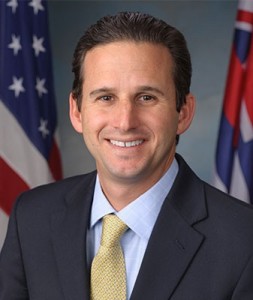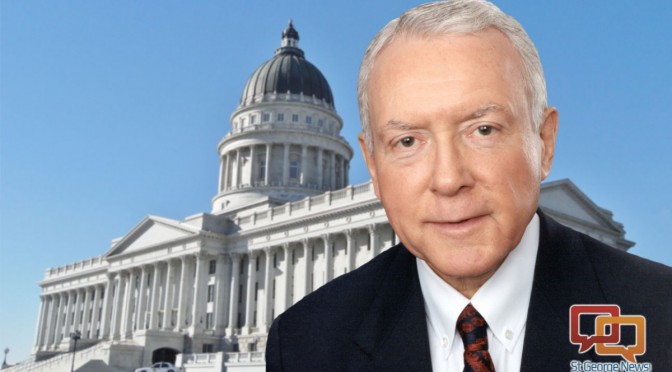
This week four Senators introduced the the MEDS Act to streamline the process of approving any medicine derived from the cannabis plant. Senator Chris Coons of Delaware, Senator Orrin Hatch of Utah (shown above), Senator Brian Schatz of Hawaii and Senator Thom Tillis of North Carolina introduced the Marijuana Effective Drug Studies Act (MEDS) of 2016.
The MEDS Act offers comprehensive, responsible solutions instead of “medicine by ballot initiative,” or the poorly-designed CARERS Act.
Senator Brian Schatz of Hawaii explains: “The MEDS Act will remove excessive barriers that make it difficult for researchers to study the effectiveness and safety of marijuana, and hopefully, give patients more treatment options.”
Senator Thom Tillis of North Carolina said: “The MEDS Act is a commonsense, bipartisan effort to remove unnecessary barriers that will give scientists the ability to study the biochemical processes, impact, dosing, risks and possible benefits of cannabidiol and other components of the marijuana plant.”

As Smart Approaches to Marijuana which supports the bill explains, the bill:
*Enables more research on marijuana by creating a faster, more streamlined process for obtaining approval from the Drug Enforcement Agency (DEA) to conduct research, including the ability to amend and supplement research proposals without reapplying. Currently, researchers who want to conduct research on marijuana must interface with several federal agencies and engage in a complex application process that can take a year or longer must start from scratch if they make any changes to their research proposal;
*Eliminates the burdensome requirement of some DEA field offices that marijuana be kept in bolted safes – a requirement not possible in many research and clinical settings – and codifies current DEA regulations that allow marijuana to be stored in securely locked, substantially constructed cabinets; and
*Requires the licensing of marijuana manufacturers for the purpose of valid scientific and clinical research and drug development and establishes manufacturing licenses for the commercial production of FDA-approved medical marijuana products.
Dr. Kevin Sabet, President of Smart Approaches to Marijuana, said. “Despite state laws, raw marijuana (smoked or ingested) is not medicine, and has never passed through the rigorous FDA approval process to ensure the health and safety of patients. The plant’s components should be studied so those in need can access any therapeutic benefits while knowing dosage, side effects, and contraindications. And more broadly speaking, the MEDS Act upholds the important, basic principle that all medications-including marijuana-based drugs-should go through the scientific process and accessed through legitimate doctors.”

The American Medical Association, American Academy of Pediatrics, American Cancer Society Cancer Action Network, American Society of Addiction Medicine, American Preventive Medical Association, American Pain Society, American Society of Anesthesiologists, and the American Academy of Pain Medicine in support of the MEDS Act.
We salute the bipartisan nature of this bill. In the House of Representatives, Rep. Earl Blumenauer of Oregon, Rep. Sam Farr of California, Rep. Morgan Griffith of Virginia and Rep Andy Harris of Maryland are expected to introduce a similar bill.
The MEDS Act represents a great improvement over the CARERS Act. Three Senators presented the CARERS Act to garner media attention last year. It was a dramatic gesture. We live in a time when too many people believe that anything derived from nature, such is poison ivy or snake oil, must be safe because it is “from nature” or “a gift from God.” Sometimes these purveyors of natural medicine make promises that cannot be kept.
Many states do not keep track of doctors and others who prescribe “medical” marijuana for nebulous reasons. Other states, such as New Jersey and Illinois, have highly controlled program.
Psychiatric problems that have ballooned in states that give out medical marijuana without reasonable medical purpose, but that can be addressed at a later date. For this reason a doctor in Florida, is urging residents in his states not to pass Amendment 2. “The easy access to marijuana has led to exacerbations of chronic health conditions, particularly mental health disease. It is difficult to fully quantify the worsening of psychosis, anxiety, depression and other mental health diseases, but easy access to marijuana and other narcotics makes a bad condition worse.” warned Dr. Allen Weiss, head of the Naples Health Care System.

